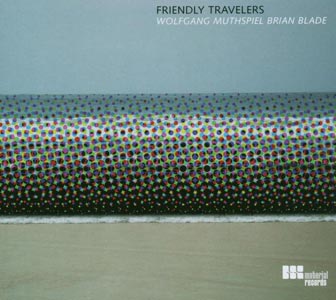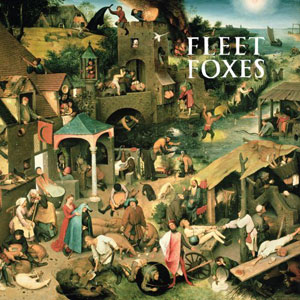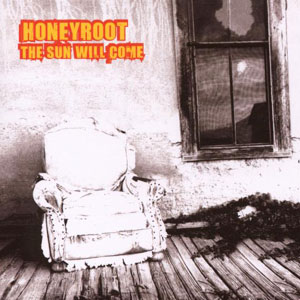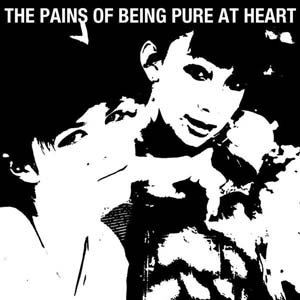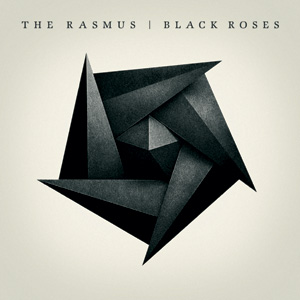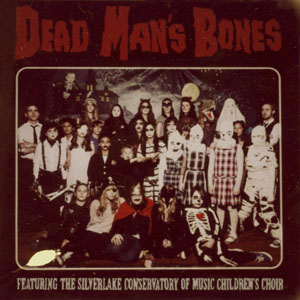| CD-DETAILS FRIENDLY TRAVELERS [MUTHSPIEL, WOLFGANG / BLADE , BRIAN] | ||||||
|
Muthspiel, Wolfgang / Blade , BrianFriendly Travelers [Jazz]RELEASE: 16.02.2007LABEL: Material RecordsVERTRIEB: Harmonia Mundi GmbHWolfgang Muthspiel - Biographie BIOGRAPHY Brian Blade Ask Brian Blade, who at twenty-seven is already a seasoned veteran of many prestigious albums and tours, what he needs to hear in music, and with characteristic sensitivity and humility he replies, "It's more like what I need to feel in it. I want to be touched by texture, the thick and thin of it." During Blade's numerous sessions his intense musicianship has touched many. Joshua Redman has called him "The drummer of the future," while Pat Metheny has said, "Brian has a quality only the really great guys have, and the ultimate commodity in a rhythm section player, he can create a vibe. He has his own thing." Kenny Garrett sums it up well, saying, "Brian is very spiritual and that is reflected in his music." From albums with Joshua Redman and Kenny Garrett, to recent recordings with Bob Dylan and Emmylou Harris, to a much anticipated spring release by Joni Mitchell, Brian Blade has shown deep musical instincts and a phenomenal gift for playing music texturally - both thick and thin - on the drums. His evolution continues on his Blue Note debut, Brian Blade Fellowship. "On this record I wanted to represent the group as best as possible," Blade explains. "I had faith in everyone's abilities to deliver heartfelt sentiments. The songs are the incidental part. They're like dormant scribblings on paper until the guys interpret them. Everyone played so beautifully, with a lot of passion. It's a good first step." Fellowship's lineup is as potent as its leader's musical skills: Jon Cowherd, piano and Wurlitzer, Christopher Thomas on bass, Melvin Butler, tenor and soprano sax, Myron Walden, alto sax, Jeff Parker, guitar; and Dave Easley, pedal steel guitar. Daniel Lanois produced (and played mando-guitar and Fender Mustang guitar); Mark Howard recorded and mixed at The Teatro in Oxnard, California. Not surprisingly, Blade's own music travels in uniquely personal directions. Gathering friends, both old and new, he makes music that exists beyond borders. "Hopefully, a story is told through the songs," says Blade, describing the album's scope. "Let's say it begins at a festival in a small town in Louisiana, with a little boy seeing all these brilliant musicians and artists. Then he travels even further south to New Orleans and has all of that culture bleed into his system. He travels across America to the Mojave desert and a song is born. There is a longing for friendship and lost friends that you want to be reunited with. All that's there and all the people that I've played with. I couldn't be more thankful." The festival Blade speaks of is the inspiration for the album's first track, "Red River Revel." Subtly blending meditative pedal steel guitar flourishes with the straight-ahead, the song hints at Blade's roots. "Where I'm from in Shreveport there is this cross and mixture in the music. Take the Red River Revel Festival. While I was there growing up you would walk from stage to stage seeing [bassist] Chuck Rainey, then Asleep At The Wheel, then the Neville Brothers, then a local choir. There was everything and yet all one thing to me." "The Undertow" uses a mournful mood to extract a slow blues then dashes it with the dual guitar of Easley and Parker, creating a playful improvisation extended by saxophone, electric piano and Blade's prodding rhythms. "That song is like a melodic prayer in a way. Too many young folk not getting to be old folk. Just leaving too soon due to many circumstances. It's like Neil Young's song `Don't Let It Bring You Down.'" Fellowship's spiritual centerpiece is "Folklore," an amazing amalgam of field recordings of Zairian Babenzele Pygmy chants (by Louis Sarno), resonant drumming, unusual harmonics and incendiary group swing. With inventive solos to match the surging melody, the track shows Blade's impressive compositional skills. "I was listening to that chant one night with my guitar and I just fell in with it. I thought, `I'm a pygmy!' So we tried it in the studio and it worked well. I didn't play so great maybe [his sparse solo actually recalls Pete LaRoca Sims], I had to put it on for the spirit that comes across. The pygmies are preparing to hunt and gather in their village so the chant goes on for hours. Along with the melody the saxophones play, it all just wove together. Melvin and Myron played so amazingly I was just in awe by the time my solo rolled around." "In Spite Of Everything" and Jon Cowherd's "Lifeline" are ruminative and probing, the first track was inspired while Blade was in Europe. "That's one of my earliest songs, written four years ago while touring with Daniel Lanois in Holland. I'd read the Diary of Anne Frank when I was 16, so I visited her house in Amsterdam. That song comes from her sentiment. Only a child, in that turbulent time she lived in, could say something like she did, that in spite of everything we're all good at heart." Rising and falling waves of sound introduce "Mojave," a starkly beautiful track that builds off Easley's eerie steel guitar, followed by the reeds stating the melody, then Easley's plaintive solo reply. Like the terrain the song was born in, the mood here is exotic and stark. "I was in Joshua Tree when I wrote that at a friend's house. It begins turbulently, like a storm in the desert. The landscape there, the width of sky... I'd sit there for hours and when the stars came out I could see the sphere we're in. I felt like I was on the edge of the world." Blade's airy "If You See Lurah" follows, the album closing with "Loving Without Asking." Here, sincere emotion paves the way for slow-burning improvisation over a loose waltz rhythm. "It's another childlike sentiment, like Jesus, to give love and not ask what the consequences are. "There were no preconceptions as to where any of the songs would go. The music dictates that. When the seven us of get together who knows what will happen. You don't know where it comes from, the songs just take another course. Hopefully that's captured on the record, this wild abandon. You don't want to consciously think about it, you just surrender to it. We all take flight from the forms." As a youngster growing up in Shreveport, then New Orleans, Louisiana, Brian Blade distilled the unique drumming styles and musical heritage of the nation's spiritual underbelly into a powerfully swinging percussive trademark. Playing drums in his father's church after an initial interest in the violin, Blade immersed himself in the work of Elvin Jones, Tony Williams, Jeff Porcaro, Levon Helm, Roy Haynes, Paul Motian, Sam Woodyard, even Keith Moon. He transcribed solos by Elvin ("All Or Nothing At All" from Coltrane's Ballads), and Max Roach ("Blueswalk" by the Roach/Brown Quintet). Moving to New Orleans when he was seventeen, Blade's perspective became broader and deeper. When not gigging with Christopher Thomas and Nicholas Payton, he studied with David Lee Jr. and Johnny Vidacovich, and came under the tutelage of Ellis Marsalis, who took Blade to England where they toured with saxophonist Courtney Pine. Blade also dipped into New Orleans culture, playing in street parades, clubs and coffehouses throughout the crescent city. With word spreading as fast as Blade's scorching cymbal rhythms, he recorded with saxophonist Victor Goines, Ellis Marsalis, King Midas & The Golden Touch (with Yo-Yo Ma on cello), and also played live with Jimmy Witherspoon, Steve Masakowski,Tony DaGradi, and Martha Reeves. It was while playing with Delfeayo Marsalis that Blade met Joshua Redman and thus began a fruitful recording/touring association. Mood Swing, Freedom In The Groove, and Spirit Of The Moment documented Blade's percussion prowess, with many taking notice. Blade also recorded and toured with alto saxaphonist, Kenny Garrett. Black Hope, Trilogy and Pursuance: The Music Of John Coltrane boiled over with some of Blade's most explosive playing. And just as jazz seemed his lone calling, Blade's love for all kinds of music found him recording with Joni Mitchell, Daniel Lanois (Sling Blade), Emmylou Harris, (Wrecking Ball) and Bob Dylan (Time Out Of Mind). "It's definitely a privilege to have had all these wonderful experiences," Blade says with familiar sincerity. "These are experiences that feed you more than you can ever know. It keeps growing inside me year to year. And with this group, I couldn't ask for greater friends to have been with. The whole recording process was comfortable because I was surrounded by friends." Spirituality, sensitivity, honesty, loyalty, all these traits feed the theme of the Brian Blade Fellowship. "I want the music to be a fellowship. That's what you want from the world as a whole. I want the music to project that kind of togetherness. This ideal of fellowship is something I grew up with. I just want to extend the good memories." Having recorded with one of his heroes (Joni Mitchell), and currently in rehearsals with one more (Wayne Shorter), Brian Blade can now relax, just a little bit, and expose what lies behind his dazzling drumming. "Joni and Wayne's music, and growing up in church with all the singing, it all comes out on the record. But I do wish I could write more methodically. `Now I'm going to sit down and write.' It never happens that way. It's more like catching fireflies, you never know when they are going to pop up. You just be around in the night and hopefully they will light up for you." (Redman, Garrett and Metheny quotes taken from Modern Drummer magazine, May 1997) (Quelle: Blue Note Records) FORMAT: CD
| ||||||
| Diese CD weiterempfehlen |

